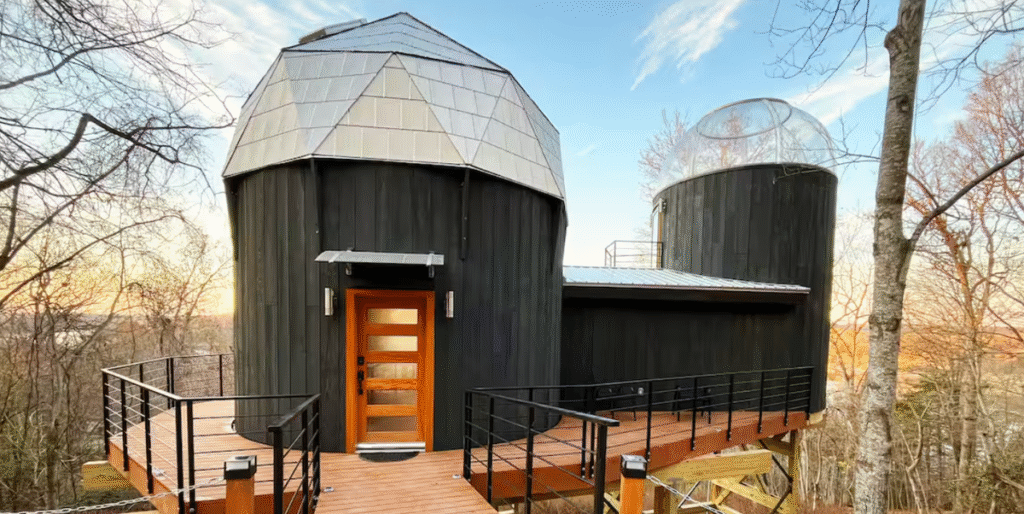It used to be all about the list.
Stand at the edge of the Grand Canyon. Snap a photo at the Eiffel Tower. Check Machu Picchu off before you hit 40.
But if you’ve traveled a fair bit, you’ve probably noticed the shift too. Seasoned travelers are walking away from the pressure of chasing every postcard-worthy landmark and instead choosing something far deeper.
So what’s going on here? Let’s dive in.
1. They’re realizing experiences matter more than checkmarks
The more I travel, the less I care about collecting “I was here” photos.
I’d rather remember sipping a tiny cup of thick Turkish coffee with an old man who taught me three words of his language than rushing through yet another cathedral.
As Dr. Robert Waldinger has pointed out, “Good relationships keep us happier and healthier. Period.” And when you think about it, travel that prioritizes people and connection over bucket list monuments fits this truth perfectly.
It’s the conversations with strangers, the laughter shared with friends on the road, and the unexpected kindness that stays with you—not whether you managed to squeeze in twelve attractions in one day.
Seasoned travelers know that a passport filled with stamps means little if the memories are shallow. Depth always trumps quantity.
2. They’re choosing connection over comparison
There’s something exhausting about treating travel like a competition.
Who’s seen the most places? Who’s eaten at the most Michelin-starred restaurants? Who has the most passport stamps?
It’s performative, and after a while, it drains the joy out of the whole thing.
The Harvard Study of Adult Development—one of the longest-running studies on happiness—found that strong relationships are the single biggest predictor of long-term health and wellbeing. Not wealth. Not fame. Not career success. Relationships.
That means whether you’re at a street market in Bangkok or sharing a homemade meal in the Italian countryside, it’s the bonds you create that truly enrich your life—not how impressive your Instagram captions sound.
And if you’ve ever had that moment of comparing your trip to someone else’s feed and feeling a little less-than, you know exactly why more experienced travelers are opting out of the competition.
3. They’ve seen that loneliness follows you everywhere
Here’s the thing nobody likes to admit: even the most breathtaking landscapes don’t cure loneliness.
You can stand on a clifftop in Santorini, glass of wine in hand, and still feel completely disconnected if you’re not present with yourself or others.
As Dr. Vivek H. Murthy, U.S. Surgeon General, has warned, “Loneliness is far more than just a bad feeling—it harms both individual and societal health. It is associated with a greater risk of cardiovascular disease, dementia, stroke, depression, anxiety, and premature death.”
This is why “travel as escape” often disappoints. You might think that being somewhere else will reset everything inside of you, but most of the time, it doesn’t. The scenery changes. The internal story doesn’t.
Seasoned travelers learn that you can’t outsource belonging to a location. It has to be built through relationships, presence, and self-awareness.
4. They’re craving depth over speed
I used to plan trips like a military campaign—day one: three museums, two churches, and a local market. Day two: day trip, followed by dinner at a “must-try” restaurant I’d found on some list.
The result? A blur of experiences that I barely remember.
Now, I’d rather spend an entire week in one small town, learning the rhythms of daily life. The butcher who knows your name by day three. The quiet afternoon siestas. The long, slow dinners that turn into conversations about family, politics, and history.
It’s the difference between skimming a hundred headlines and actually finishing a novel. One gives you quick satisfaction. The other changes how you see the world.
When you stop racing, you start noticing—the smell of the bakery at dawn, the way kids play soccer in the street until midnight, the silence of a church when nobody else is inside. These are the details that stitch travel into your memory for good.
5. They’re questioning who the list is for
I’ll be honest—half of my old bucket list wasn’t really mine. It was culture’s. It was Instagram’s. It was travel blogs telling me where I “had” to go.
But Rudá Iandê, in his book Laughing in the Face of Chaos, writes, “When we let go of the need to be perfect, we free ourselves to live fully—embracing the mess, complexity, and richness of a life that’s delightfully real.”
That line stuck with me. I realized that travel doesn’t need to be about proving anything. It’s not about being perfect, or even about doing it “right.” It’s about being honest with what actually lights you up.
For me, that sometimes means skipping the famous sites altogether and wandering down back streets with no plan. For others, it might mean spending more time in nature or going back to the same beloved city again and again.
The key is that the choice is yours—not society’s.
6. They see travel as a way of living, not a project to finish
Here’s the big shift: travel stops being about getting somewhere and becomes about being somewhere.
Once you’ve been on the road enough, you realize there is no finish line. You’ll never see it all, taste it all, or do it all. And that’s the point.
The more you try to force completion—like it’s some project at work—the more joy you squeeze out of the experience.
Travel is best when it’s open-ended. When you let yourself stumble into a festival you didn’t plan for. When you spend the whole day at a café writing, instead of racing off to the next tourist attraction.
It’s less about “What did I achieve?” and more about “How did I live?”
Because at the end of the day, it’s not a contest. It’s life.
Conclusion: moving beyond the list
So why are seasoned travelers quietly abandoning the bucket list?
Because they’ve seen that chasing checkmarks doesn’t lead to fulfillment.
They know that what makes a trip meaningful isn’t how many attractions you’ve crammed in—it’s the connections, the slow moments, and the way travel shapes who you are when you return.
Maybe that’s why so many are swapping bucket lists for something far less glamorous but infinitely more rewarding: presence.
Not trying to do it all, but savoring what’s right in front of you.
And if you’re feeling the pull to step off the hamster wheel of “must-sees,” maybe it’s worth asking yourself: what do you really want to remember about your travels? The list you completed—or the life you actually lived?


